Real-world driving experience in the Polestar 3 and Polestar 4
I got a ride in pre-production versions of Polestar’s two upcoming EVs on the streets of Los Angeles

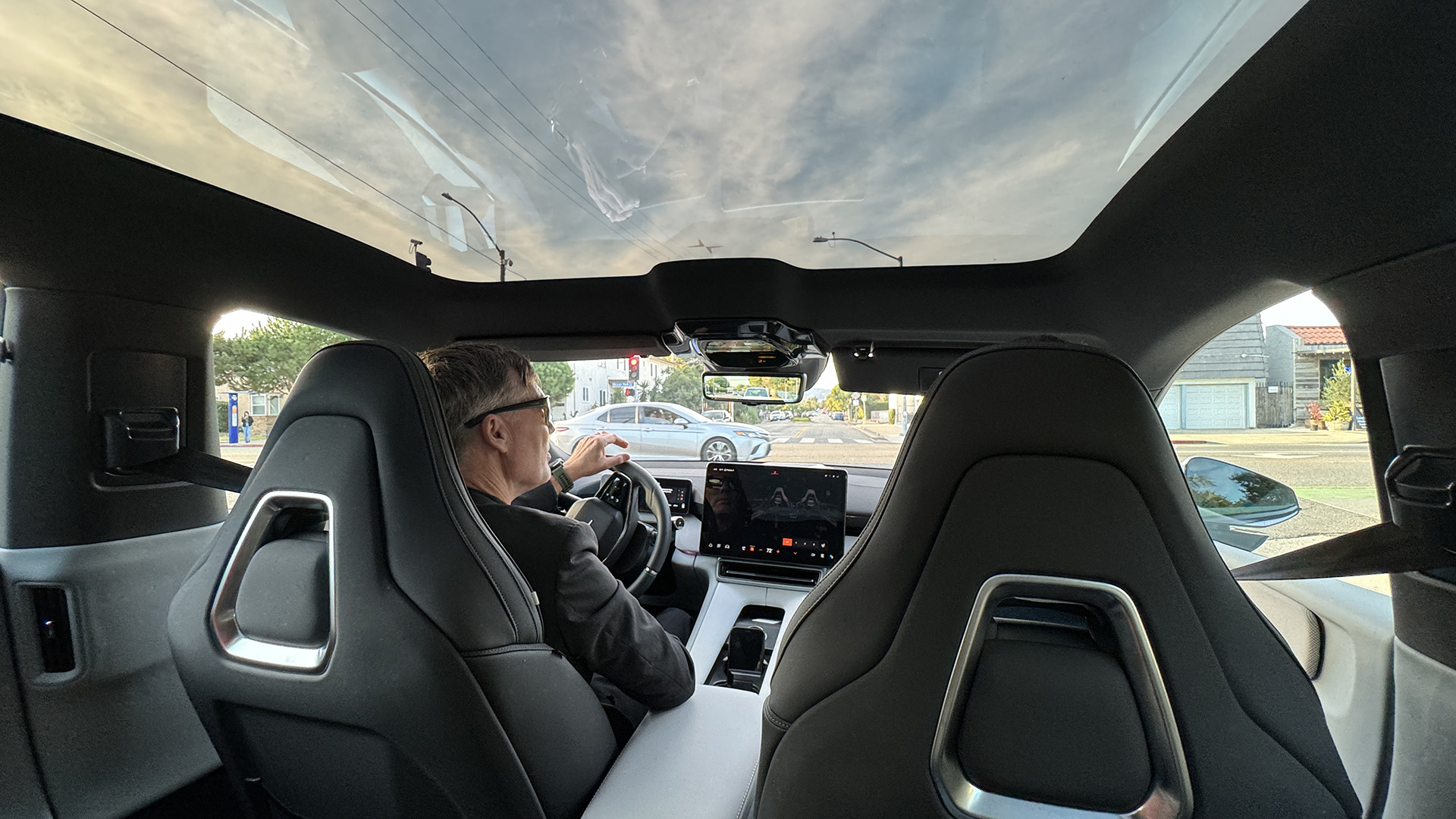
Get all the latest news, reviews, deals and buying guides on gorgeous tech, home and active products from the T3 experts
You are now subscribed
Your newsletter sign-up was successful
LA sunshine does add a certain appeal to everything it touches, but Polestar’s lineup has never looked better. For years the company has had just two cars in its ranks: the original Polestar 1 and the Polestar 2. But at the inaugural Polestar Day, it had six different models on display.
It was the Polestar 2 that became the company’s big success, outselling Tesla in some markets, including the UK. In 2024 though, it will add two new models to its lineup and has a further two in the pipeline.
The company had preproduction versions of its upcoming Polestar 3 and Polestar 4 models at its Santa Monica event and I couldn’t resist the chance to get a ride in them with product managers at the wheel. While I couldn’t drive the cars myself, it did give me a better understanding of how the new cars perform, what they offer and where they will sit in the range.

Polestar Day in Santa Monica, November 2023
Polestar 3 drive
The Polestar 3 is the company’s first SUV model and is based on the same platform as the Volvo EX90. The car is expected to go on sale in Europe and the US in the second quarter of 2024 and will become the flagship model in the range – at least until the Polestar 5 launches in 2025.
Priced from £79,900 / $83,900 the Polestar 3 feels more like a crossover than a full SUV, thanks to its curved roof and lower boot. It also has an aero wing on the bonnet to better direct the air over the vehicle, which looks far nicer than it sounds.
Tech-wise, it offers a number of premium features that elevate it from the current model 2, including optional LiDAR sensors, a bespoke 25-speaker Bowers & Wilkins sound system and air suspension.
The interior feels premium and minimalist. The drive selector has moved from the central divide to a stalk on the steering wheel, leaving just a single rotating dial in the middle. The B&W sound system includes a signature tweeter in the middle of the dashboard and includes speakers in the headrests, allowing navigation audio instructions to be only heard by the driver.
Get all the latest news, reviews, deals and buying guides on gorgeous tech, home and active products from the T3 experts
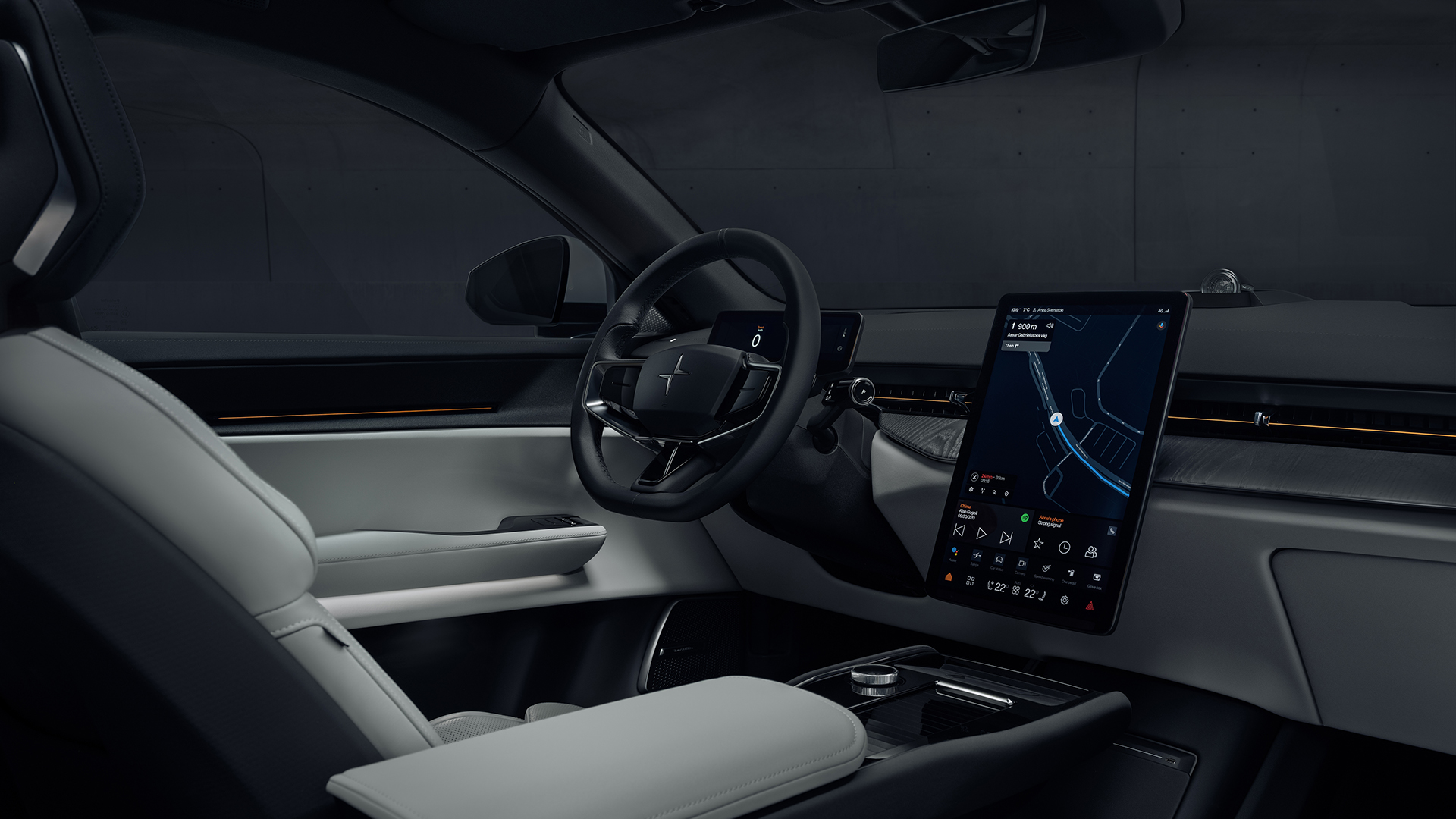
Polestar 3 interior
The driver info screen behind the wheel is a neat 9-inch lone display rather than a full cockpit moulding which really compliments the vertical 14.5-inch centre display. The system runs Android Automotive natively (like the 2) and looks really slick.
There’s a range of premium upholstery options available, including animal welfare-traced Nappa leather, wool or a Micro-tech alternative for the seats, and black ash wood for the panels. Then you get a tinted panoramic glass roof to make the whole cabin feel light and airy.

Bowers & Wilkins headrest in the Polestar 3
The air suspension system definitely gives the car a smoother ride, and this automatically lowers at higher speeds to improve aerodynamics. There’s plenty of power too, with 489hp up to 517hp on the Performance Pack mode, which gives an acceleration of 4.6 seconds (0-62mph). The dual motor system gives four-wheel drive and individual torque to each wheel, through a dual-clutch system.
There’s a hefty 111kWh battery inside too, which will give you 270 to 300 miles, depending on if you have the performance pack. The Polestar 3 is likely to prove popular in the US, where larger SUVs are king, and I think it will be a great choice in the UK too, where the badge and its modern Scandinavian design makes it the cooler choice of EV.
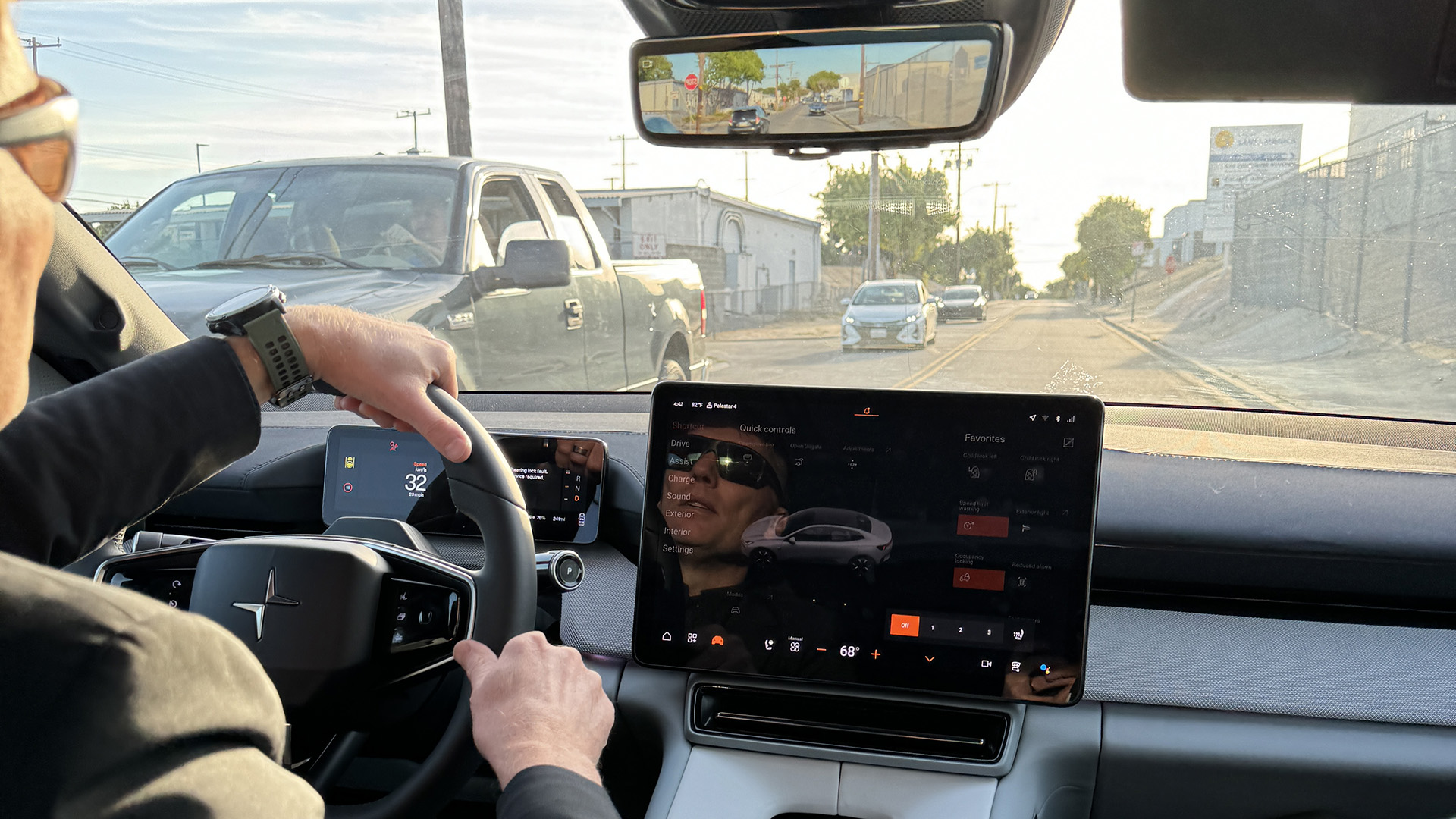
Inside the Polestar 4 with the digital rearview mirror
Polestar 4 drive
The Polestar 4 won’t be coming to Europe or North America until later in 2024, but production in China of the car, for the local market, starts next week. In terms of price and specification, the Polestar 4 actually sits between the 2 and the 3, though it does come with some clever features that the 3 lacks. This model is expected to start from £55,000 / $60,000 for the single motor version.
This car is more sedan-shaped, though it is still bigger, and taller than the Polestar 2. Despite being lower to the ground it manages to offer a huge amount of room inside by removing the rear window and replacing it with a dual camera system and a digital rearview mirror. By doing this, the car is able to offer a lot more height in the back. In fact, there’s tons of head space and leg space for rear passengers here. The panoramic roof keeps it nice and bright inside too.
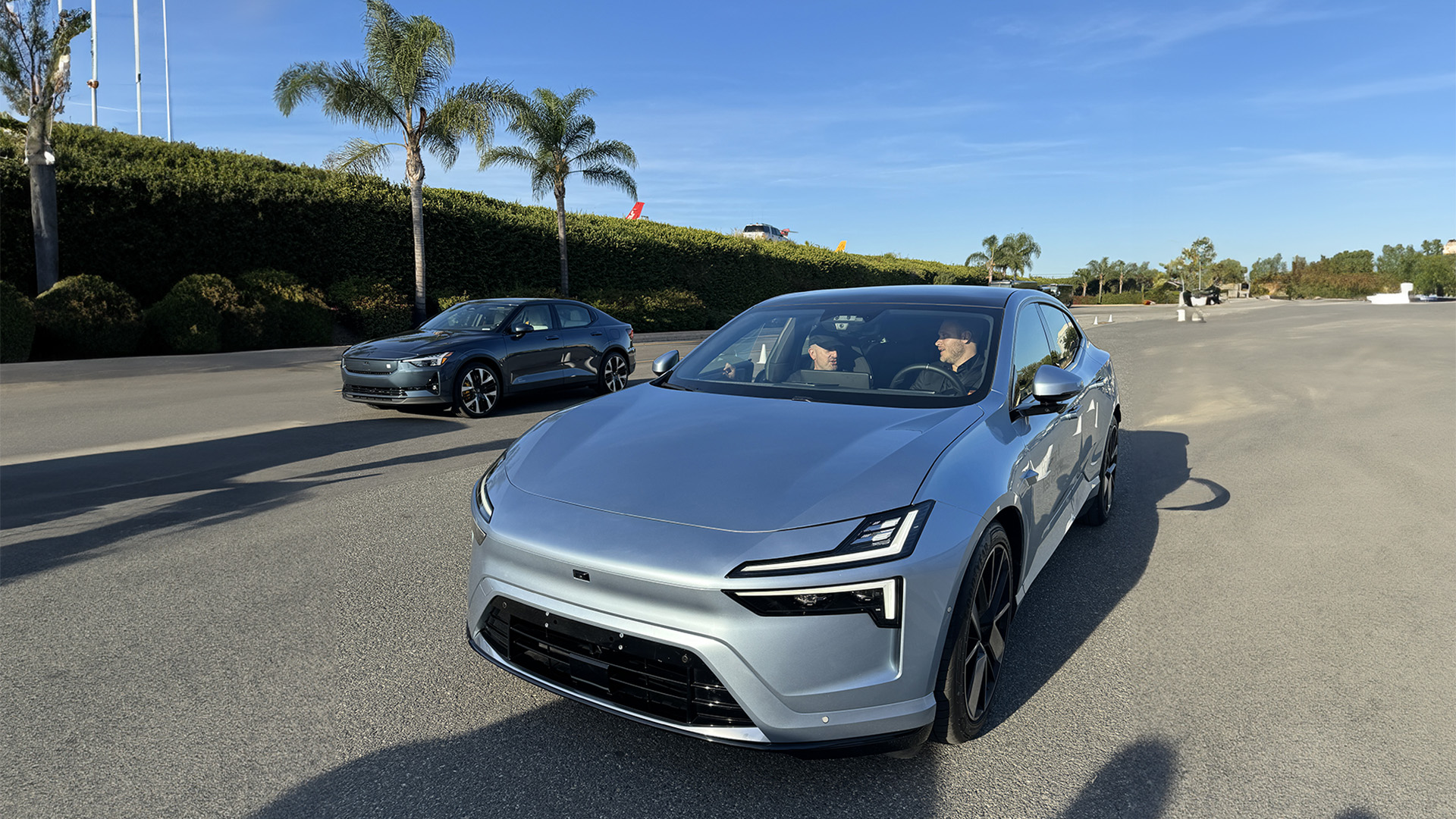
Polestar 4 pre-production model
While the digital rearview mirror won’t be to everyone’s liking, there’s no denying it gives a much clearer view than you get from most optical mirrors – and without the rear headrests, passenger’s heads or the surround of the window blocking your view. Without the rear window, you get a much more usable boot space too, and one that’s completely secure – and out of the eyes of opportunists.
To keep the price of the Polestar 4 down – and into that sweet spot – there have been some concessions made. You get the Harman Kardon audio, rather than B&W, there’s no air suspension and the glass roof isn’t tinted.
There will be both single and dual motored version of the Polestar 4. The single will offer a reasonable 272hp, while the pricier ($80k) dual could see up to 544hp and a 3.8-second 0 to 62mph acceleration. The range figures are expected to be up to 270-300 miles from the 94kWh battery.
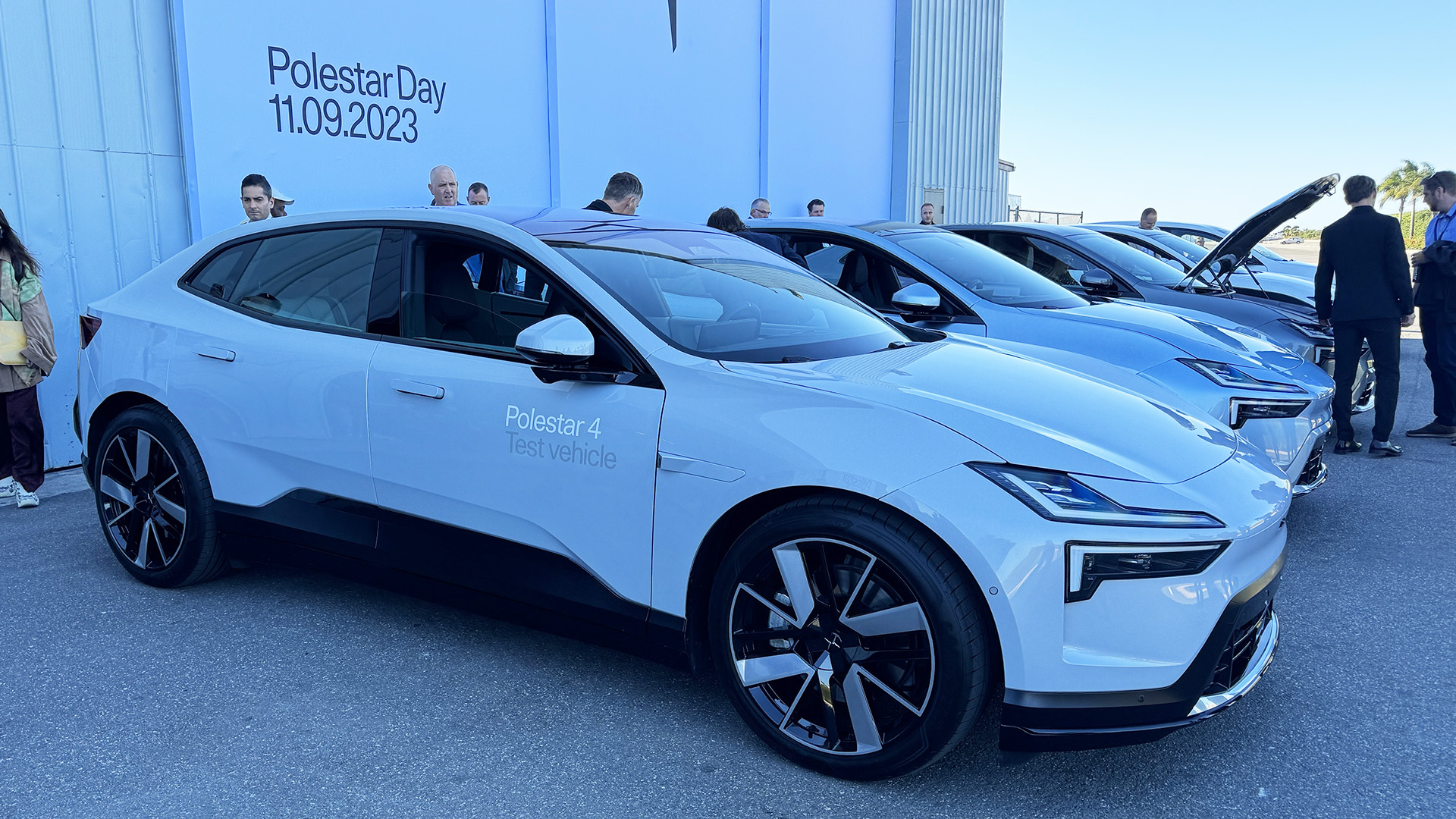
Polstar 4
Interestingly, the Polestar 4 will get LiDAR tech as part of the Mobileye Chauffeur system, in addition to the visual cameras. These systems will enable the car to offer hands-off, eyes-off driving on motorways, and hands-free driving in the city (where laws allow).
The interior of the car is similar to the 3 in terms of minimalism and comes with the same, wool, leather and Micro-tech upholstery options too. The central screen sits horizontally though, and the chunkier central divide comes much higher.
There’s certainly a lot to love about the Polestar 4. It’s quick and though not as smooth a ride as the Polestar 3, the combination of features and affordability could make it a winner overall.

As T3's Editor-in-Chief, Mat Gallagher has his finger on the pulse for the latest advances in technology. He has written about technology since 2003 and after stints in Beijing, Hong Kong and Chicago is now based in the UK. He’s a true lover of gadgets, but especially anything that involves cameras, Apple, electric cars, musical instruments or travel.